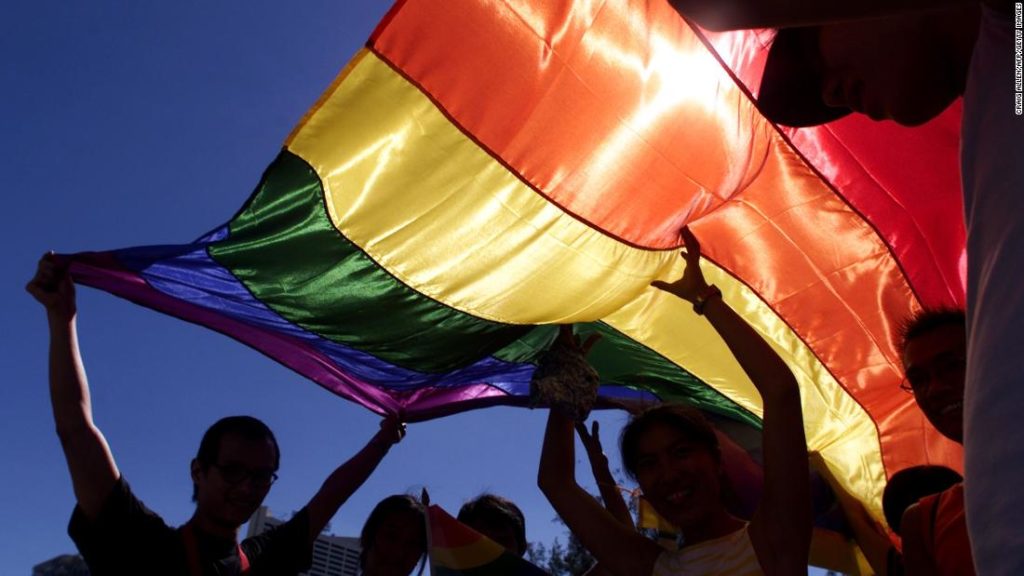
On social media Tuesday, LGBT rights supporters protested the abrupt closure of these accounts by the Tencent-owned company. The deleted accounts were run by students across universities in China, including prestigious institutions such as Peking University and Tsinghua University in Beijing, and Fudan University in Shanghai.
“After receiving relevant complaints, all content has been blocked and the account has been put out of service,” the notice read, citing violation of a government regulation on the management of online public accounts.
WeChat did not immediately respond to a request for comment from CNN Business.
Cathy, a manager of one of the deleted LGBT group of a university in Beijing, said the six-year-old account had about 18,000 followers.
The 25-year-old — who requested to use a pseudonym fearing retribution from authorities — has seen discussions on sexuality become more guarded at her university over the last few years. In the past, her group could openly advocate for LGBT rights on campus and hold small seminars for sexual minorities to share their stories. Now, their offline activities are limited to private gatherings, such as sharing a meal or watching a movie together, she said.
“In recent years, our goal is to simply survive, to continue to be able to serve LGBT students and provide them with warmth. We basically don’t engage in any radical advocating anymore,” added Cathy.
The blocking of WeChat accounts triggered an outrage on Chinese social media.
But the move has been welcomed by online nationalists, some of whom claimed, without evidence, that these LGBT groups have been infiltrated by “foreign forces.”
Cathy, from the LGBT group in Beijing, called the claim “completely ridiculous.”
“Sexual minority groups have long existed in China, not because of any incitement from so-called foreign forces,” she said. “They do not understand [the LGBT community] at all, and have no intention to understand [us].”
You may also like
-
Afghanistan: Civilian casualties hit record high amid US withdrawal, UN says
-
How Taiwan is trying to defend against a cyber ‘World War III’
-
Pandemic travel news this week: Quarantine escapes and airplane disguises
-
Why would anyone trust Brexit Britain again?
-
Black fungus: A second crisis is killing survivors of India’s worst Covid wave

